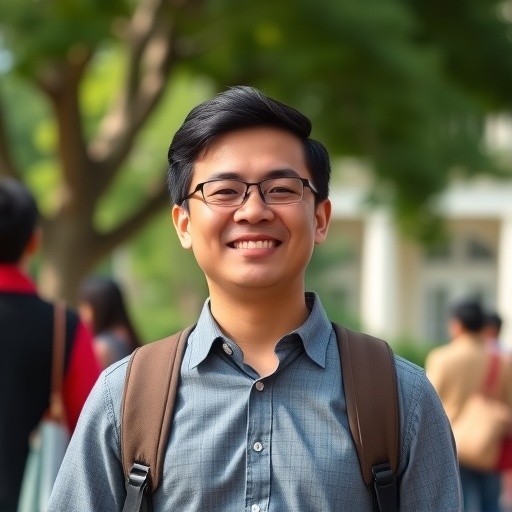In a transformative era for education, the investigation into the dynamics of student agency, particularly among first-generation college students in China, has garnered significant attention. A recent study by scholars Xie and Dou sheds light on how these students navigate their transition to elite universities. This research addresses not only the personal challenges they face but also the broader implications for educational policy and practice in a rapidly evolving academic landscape.
First-generation college students, those whose parents did not attain higher education, often encounter unique challenges as they pursue academic excellence. The study emphasizes the multifaceted nature of their experiences, revealing that these students do not merely represent a demographic statistic but embody a complex interplay of ambition, resilience, and self-advocacy. Their journey from high school to prestigious institutions is marked by a myriad of obstacles, including cultural barriers, financial constraints, and a lack of familial guidance regarding the college experience.
Xie and Dou delve into the concept of “student agency,” which refers to the capacity of students to act independently and make choices that influence their educational trajectory. For first-generation students in elite settings, agency manifests in various forms. They are often seen negotiating their identities, seeking out mentors, and advocating for resources that support their academic endeavors. The study highlights how these proactive behaviors are crucial for fostering a sense of belonging and confidence in environments that can otherwise feel daunting.
A key finding of the research underscores the importance of institutional support in enhancing the agency of first-generation students. Elite universities often have extensive resources, yet many students remain unaware of the opportunities available to them. The authors argue that creating an inclusive environment, where students are actively informed about the resources, scholarships, and networking opportunities can significantly impact their academic success. Ensuring that first-generation students are equipped with the knowledge to utilize these resources is paramount.
Moreover, the study explores the role of peer relationships in shaping student agency. It finds that social networks can either bolster or hinder the experiences of first-generation students. Those who engage with peers from similar backgrounds often find solidarity and support, whereas students who feel isolated may struggle to assert their agency effectively. Building a community where first-generation students can share experiences and strategies for success can play a pivotal role in their academic journeys.
The authors also point to the intersectionality of identity, noting how factors such as socioeconomic status, gender, and ethnicity can further complicate the experiences of first-generation students in elite academic spaces. For instance, students from lower socioeconomic statuses may contend with additional barriers, such as juggling part-time work alongside their studies, which can detract from their academic focus. Understanding these complex dimensions is essential for universities aiming to develop more inclusive policies.
Xie and Dou’s investigation reveals that first-generation students often develop adaptive strategies that empower their educational pursuits. Drawing upon their life experiences, they tend to exhibit high levels of determination and creativity in addressing challenges. This resilience is essential not only for navigating the rigors of academic life but also for influencing their long-term career prospects. Their ability to adapt and overcome can often serve as a model for other students, illustrating the valuable lessons inherent in struggle and perseverance.
Central to their transition experience is the negotiation of expectations—both personal and institutional. First-generation students often face pressure to succeed, both from themselves and others, which adds to the weight of their academic responsibility. The study sheds light on how this pressure can stifle agency if students feel confined to pre-defined paths set by their institutions or family expectations. Addressing this delicate balance between ambition and support is crucial for fostering an environment where students feel free to explore their educational interests.
In response to these findings, the researchers advocate for systemic changes within universities to better support the unique needs of first-generation students. They propose initiatives that focus on enhancing awareness of available opportunities and creating mentorship programs that pair students with faculty and alumni who understand their specific challenges. By encouraging a culture of mentorship and support, institutions can enhance the educational experiences of first-generation students and empower them to thrive.
Furthermore, the study emphasizes the need for ongoing research to better understand the long-term outcomes of first-generation college students. While much of the current literature examines immediate transitions and setbacks, there is a critical need to track these individuals throughout their careers. By understanding the trajectories of first-generation students post-graduation, universities can tailor their support mechanisms more effectively and create environments conducive to success.
In conclusion, Xie and Dou’s research is a vital contribution to the conversation surrounding first-generation college students in China. Their exploration of student agency reveals the complexities of navigating elite educational landscapes and emphasizes the necessity of institutional support. As universities continue to evolve, it is imperative to recognize and address the unique circumstances that first-generation students face, fostering an educational environment where ambition is met with the necessary tools for success.
This approach not only enhances the educational experience for first-generation students but also enriches the academic environment as a whole, paving the way for a more diverse and inclusive future in higher education.
Subject of Research: Student agency of Chinese first-generation college students in transition to elite universities.
Article Title: Student agency of Chinese first-generation college students in transition to elite universities.
Article References:
Xie, W., Dou, Z. Student agency of Chinese first-generation college students in transition to elite universities. High Educ (2025). https://doi.org/10.1007/s10734-025-01503-2
Image Credits: AI Generated
DOI: 10.1007/s10734-025-01503-2
Keywords: First-generation college students, student agency, elite universities, educational transition, institutional support, peer relationships, mentorship, resilience, educational policy.




